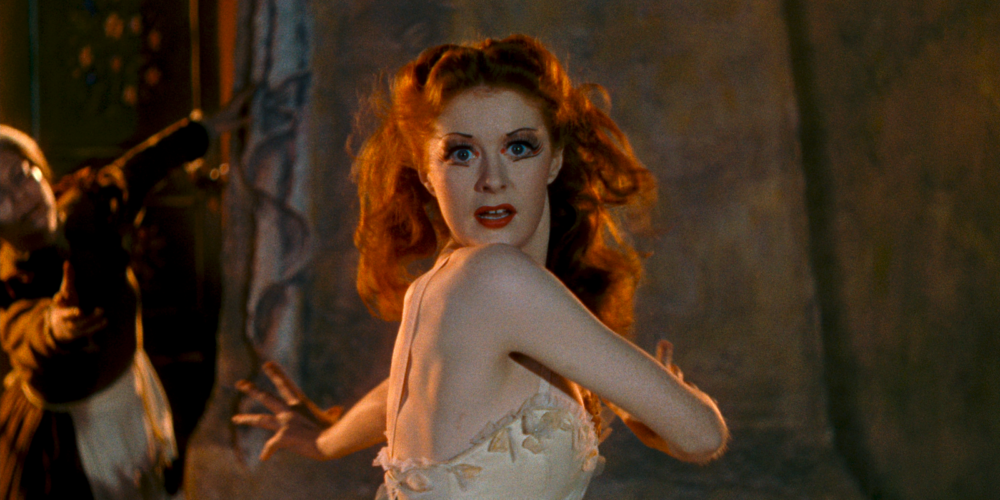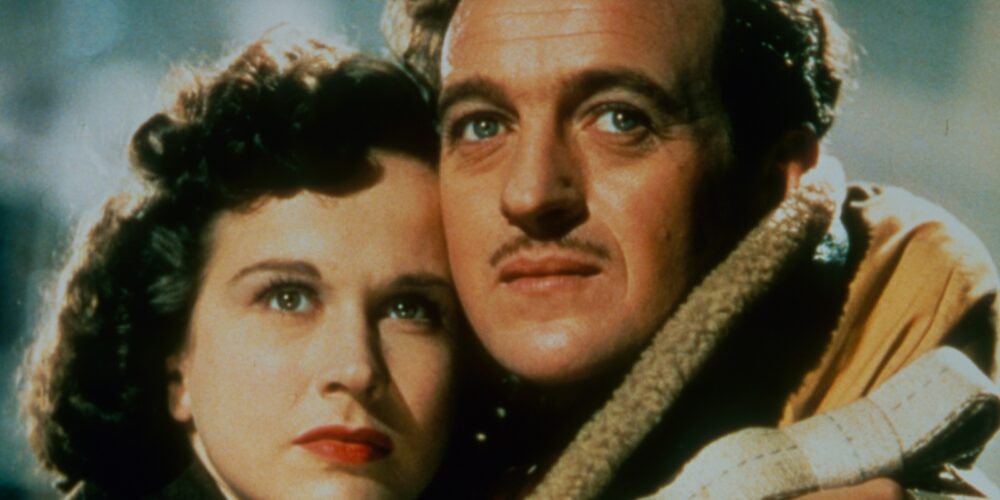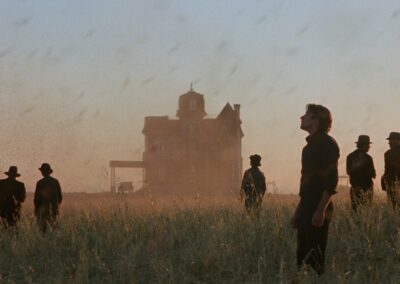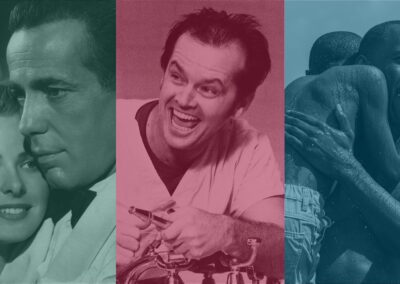There is a generally held assumption about British cinema that, in this country, we are very good at making gritty, realist and naturalistic cinema (which we are). Think Ken Loach (whose uncharacteristically disappointing swansong The Old Oak played at the UPP recently). Think Shane Meadows. Mike Leigh. Gary Oldman’s Nil By Mouth. Think about the great New Wave of British Cinema from the 1960s – The Loneliness of the Long Distance Runner, Saturday Night and Sunday Morning and, my favourite, A Kind of Loving. Think of our greatest crime films (Get Carter and The Long Good Friday spring to mind). Even our comedies (Withnail and I, for example) and Love Stories (Brief Encounter, anyone?) are born out of everyday life as it is (sometimes) lived in this country.
Obviously there are all sorts of other strands in the complex history of British cinema (war movies, Ealing, heritage cinema, end-of pier smut shows, Bond, gangster films etc.) each deserving of a several books.
However, one area that does not immediately spring to mind when thinking about the movies made in the UK, is what can be best described as “magic realism” and yet intelligent, sophisticated, ambitious “magic realism” was par for the course for arguably the greatest team of film makers this country has ever produced – the mighty Michael Powell and Emeric Pressburger, whose films are playing nationally in spruced up prints at the UPP (and across the country) over the next few months.

Film lovers will all, no doubt have their personal favourites – but for me, The Red Shoes and Black Narcissus remain outstandingly good some 70 or so years after their initial release and, of course there’s always a lot of love in the room for A Matter of Life and Death. Like the Ealing films’ logo; their Archers film ident appearing at the beginning of one of their movies, is something likely to set film lovers’ hearts racing – this is going to be something special. Something to be proud of. Something ours. Something spectacular.
And, of course, the wonderfully eccentric “Englishness” the duo appeared to tap into in their best work (which also includes The Life of Colonel Blimp, The Tales of Hoffman and under rated The Small Back Room) – and the links they made back to other influential British writers – Shakespeare and Chaucer being the obvious examples, resulted in them being popular, respected and well-loved both in the UK and internationally.
Or at least they were until Powell goes solo in 1960 and makes the downright squalid and ugly Peeping Tom which resulted in a massive falling from grace and exile.
In a 1942 letter to the actress Wendy Hiller, Pressburger (who was, in fact, a Hungarian, who had fled from Germany during the rise of the Nazi party) explained why The Archers films were so unique.“No artist believes in escapism,” he wrote. “And we secretly believe that no audience does. We have proved, at any rate, that they will pay to see the truth, for other reasons than her nakedness.”
These words speak volumes about the films the duo produced (it was a real collaboration – both men involved with all aspects of the film making process) and, perhaps, the state of mainstream cinema today.
Firstly, he rightly suggests that if film is to be considered an art form then it must be seen as capable of far more than just “escapism.” This seems to me, as a teacher of the subject, to be absolutely true. I’m happy to acknowledge that cinema can transport us away from the day-to-day realities of our lives (of course it must) but on return, we should be somehow “changed” by the journey we have been on: usually in small, immeasurable ways – but profoundly.
Secondly, Pressburger recognises the important fact that audiences are intelligent and willing to be challenged by the films they see. They want to find truths on screen and are able to put in the effort to do so (Marvel et al take note).
In the same letter, he notes that “every single foot in our films is our own responsibility and nobody else’s.” The integrity and independence this suggests is another reason why The Archers matter and why these films retain their power all these years later.
So what actually makes the work of Powell and Pressburger so unique, in addition to their independent spirit and lack of compromise? For me it’s the fact that their movies do not fit into neat little boxes – they are hard to pin down and allusive. The best work is beautiful to look at beyond compare (Jack Cardiff’s cinematography is truly outstanding); Reginald Mills’ editing shapes them to perfection and the production design (especially Hein Heckroth’s work on The Red Shoes) is usually incomparable. And that’s without mentioning the performances – David Niven and Kim Hunter’s profoundly moving exchange at the beginning of A Matter of Life and Death; Kathleen Byron’s incredible descent into madness in Black Narcissus and Anton Walbrook’s charismatic turn as the Svengali-like Lermontov in The Red Shoes. And that’s just for starters.

In addition, their films somehow transcend cinema too. They are fusions of dance, colour, sound, artificiality and imagination – both real and magical at the same time: ambitious, innovative, moving, funny, visionary and life-affirming.
And, of course, Powell’s career-wrecking Peeping Tom, so reviled at the time of its initial release, is, in its own twisted way, on a par with Hitchcock’s Vertigo as one of the great studies of voyeurism: a theme cinema excels at – in many ways, its most obvious subject matter.
So, whether you’re discovering these films for the first time or, like me, itching to catch them again in all their glory up on the big screen, you really do not want to miss out on what is likely to be a real highlight of 2023: a season of films which irrefutably justify the fact that a life devoted to the movies is a life well lived and, as Godard famously said, cinema is “truth 24 times per second.”
For full listings of the UPP’s December 2023 Powell & Pressburger season, click here.
Dr Andrew C Webber is a Film teacher and examiner with over 37 years’ experience. He currently contributes to both the Cinema of the 70s and 80s magazines (available on Amazon); cassette gazette fanzine (available from cassette pirate on e-bay) and the Low Noise music podcast available on Spotify and Apple podcasts.


